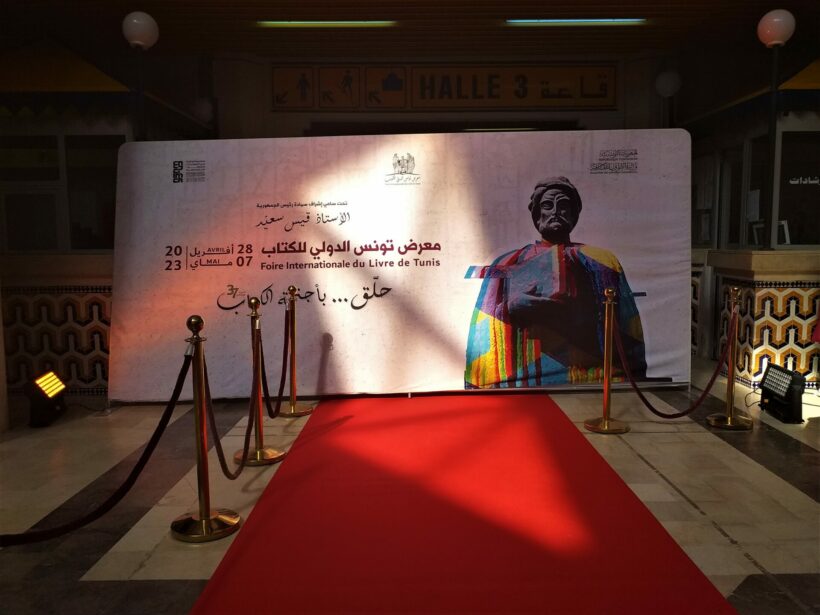The 37th Edition of the book fair is particularly special this year for several reasons. For one, it was organized by Zahia Jouirou, an academic, researcher, and head of the Tunis Translation Institute and the first woman to ever lead the fair since its inception. The fair opened on April 28th and closed today, May 7, and was organized by the Ministry of Cultural Affairs in collaboration with several Tunisian cultural institutions, including the National Library of Tunisia and the Tunis International Center for Digital Cultural Economy, and Arab institutions such as the Arab States Broadcasting Union and the Sharjah Institute for Heritage. The book fair opened its doors in the afternoon of April 28th after President Kais Saied delivered his inaugural speech about freedom of thought.
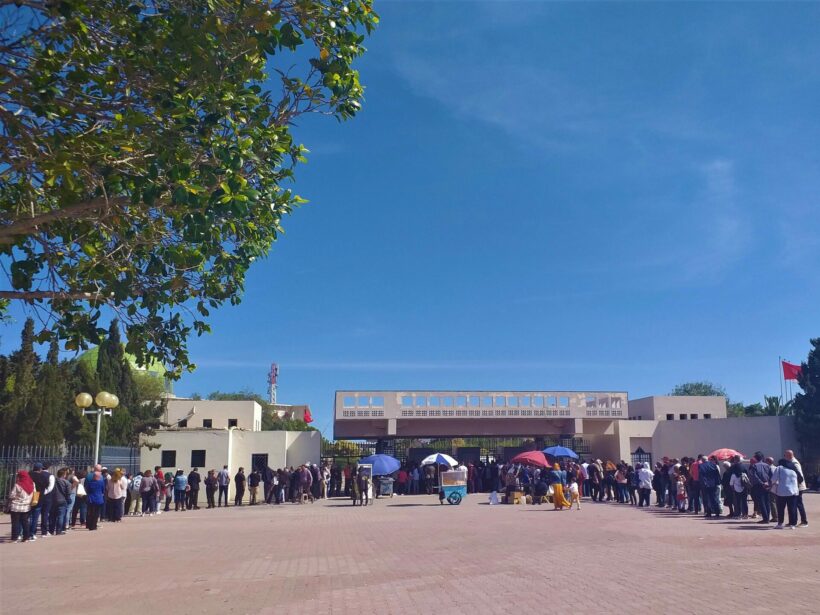 Caption: Tunisians from all age groups and regions lined up in front of the Exhibition and International Trade Center in Le Kram, waiting for the president to finish his speech and for the gates to open.
Caption: Tunisians from all age groups and regions lined up in front of the Exhibition and International Trade Center in Le Kram, waiting for the president to finish his speech and for the gates to open.
The fair was highlighted by the participation of Iraq, as the guest of honor with a significant delegation at the Iraqi pavilion. Several other Gulf countries along with Maghrebian countries were also present; Palestine and Syria as well. Russia and Italy are also participating for the first time in the fair’s history, along with several other European countries like Hungary, Bulgaria, and Latvia who is also a guest of honor. Likewise, South Korea and Indonesia are contributing with dance performances.
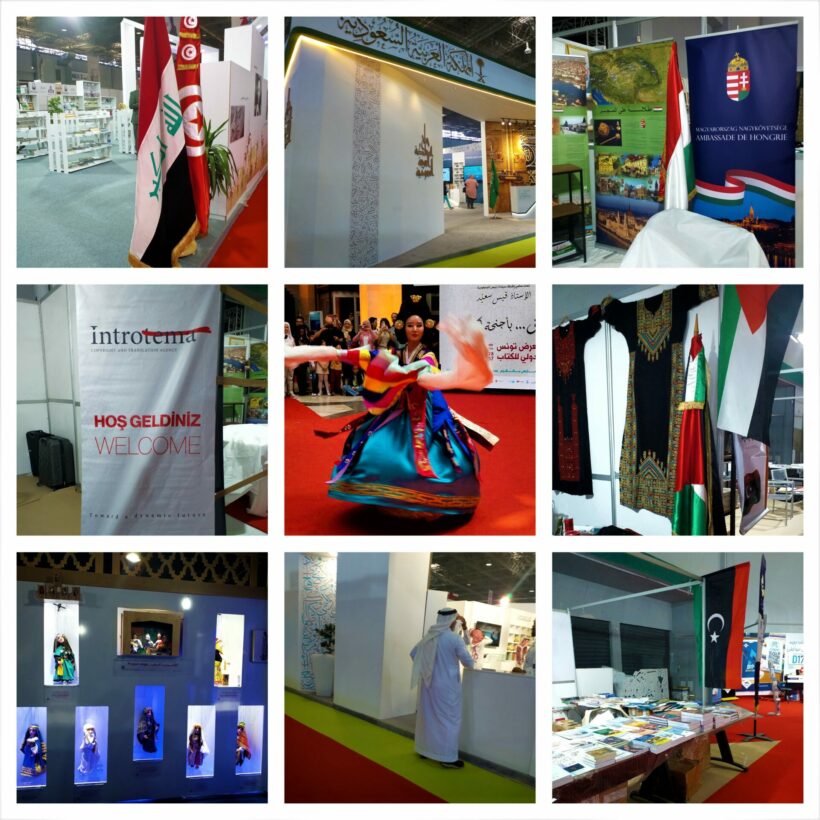 Caption: The event hosted 330 exhibitors from 22 countries and featured over 100 activities highlighting the special transcontinental, cultural, and thematic diversity of this year’s edition.
Caption: The event hosted 330 exhibitors from 22 countries and featured over 100 activities highlighting the special transcontinental, cultural, and thematic diversity of this year’s edition.
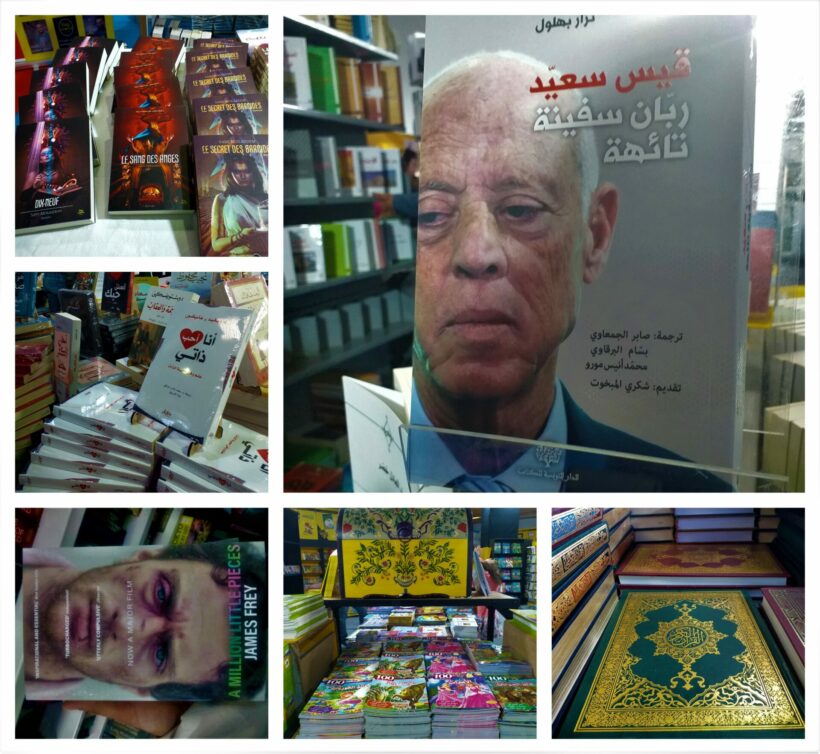 Caption: Visitors can access 500,000 books on display written in different languages and for different preferences and age groups. An app was installed at the halls’ entrance to assist people in finding the books they are interested in. Special attention to the development of reading materials and digitization was paid in this book fair.
Caption: Visitors can access 500,000 books on display written in different languages and for different preferences and age groups. An app was installed at the halls’ entrance to assist people in finding the books they are interested in. Special attention to the development of reading materials and digitization was paid in this book fair.
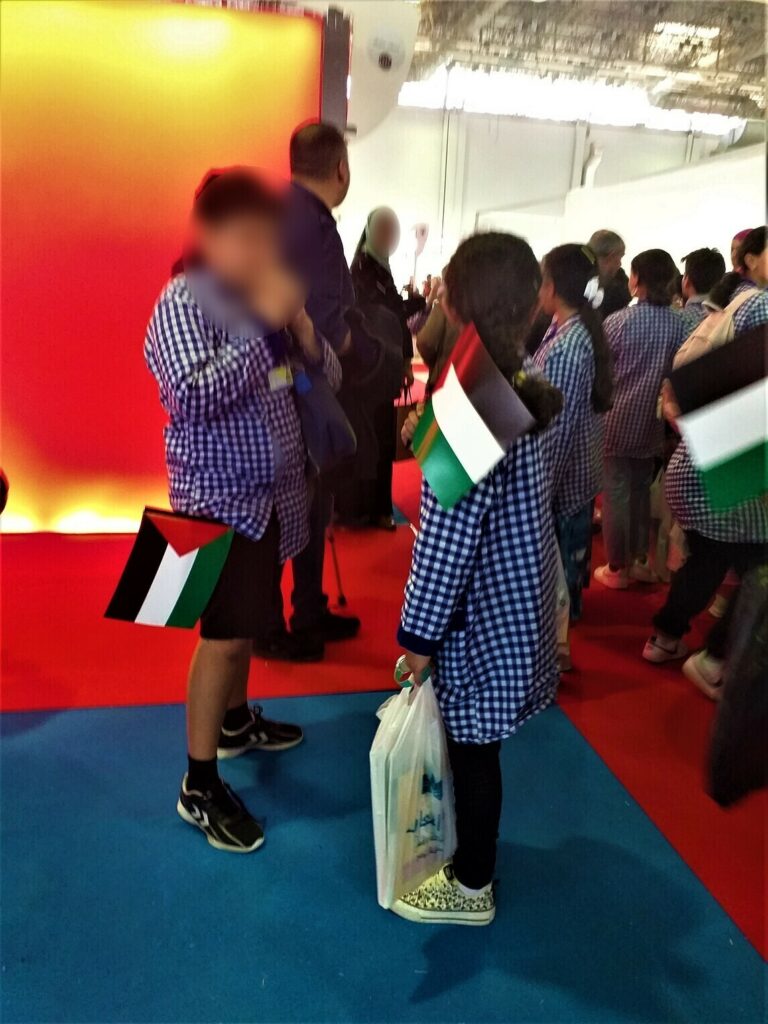 Caption: This year’s event is not only a chance for kids to be exposed to a new variety of books but also to different parts of the world…
Caption: This year’s event is not only a chance for kids to be exposed to a new variety of books but also to different parts of the world…
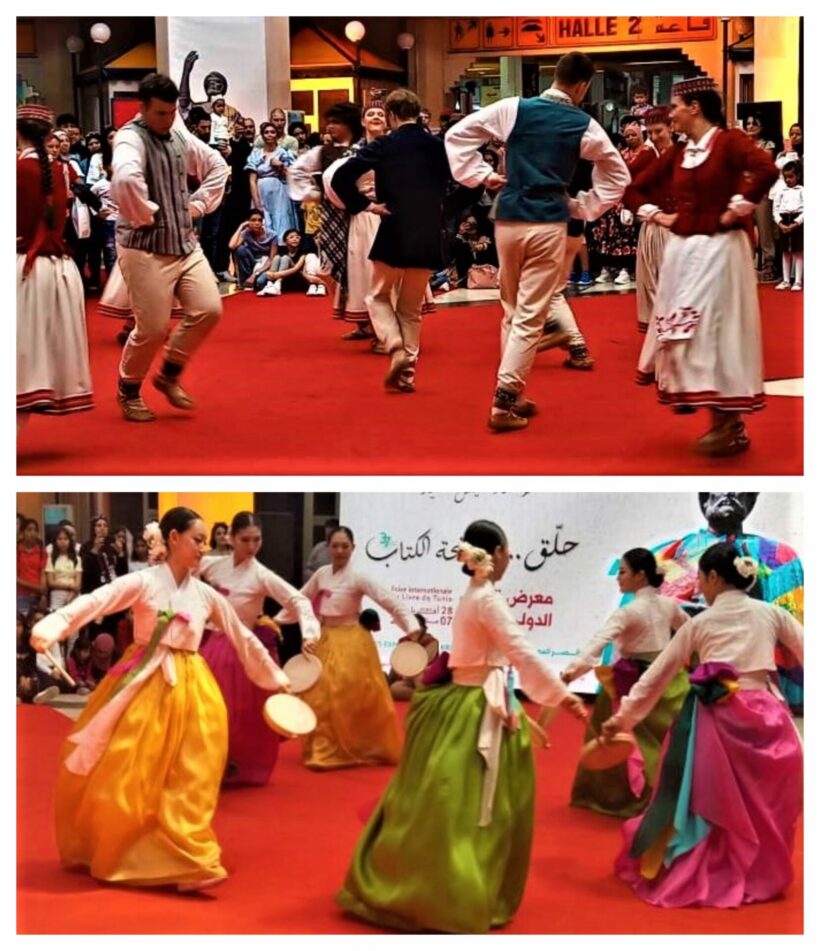 Caption: …and different national and cultural heritages, like Korean and Latvian traditional folk dances.
Caption: …and different national and cultural heritages, like Korean and Latvian traditional folk dances.
The United Nations is participating in the book fair with more than 60 activities covering topics like human rights, children’s rights, refugees, migrants, women and people with disabilities, through lectures plays, a cooking workshop, a vegetable garden, a digital art exhibition, a human library, film projections, as well as games and animations for all types of audiences.
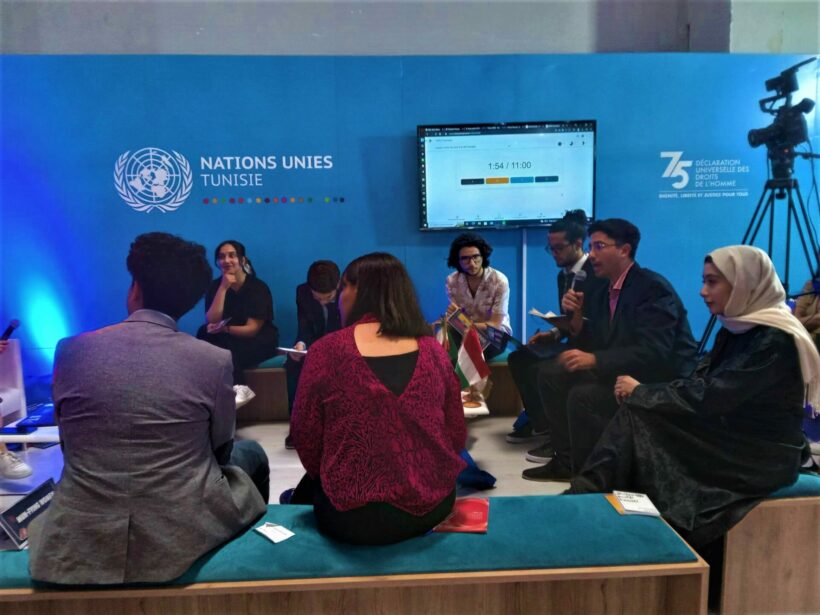 Caption: Young Tunisian debaters taking part in international diplomacy and UN mandate simulation on April 30th.
Caption: Young Tunisian debaters taking part in international diplomacy and UN mandate simulation on April 30th.
However, this year’s book fair did not proceed without difficulty. As a matter of fact, on April 28th, right before the President’s inaugural visit, security agents from the Ministry of Culture seized copies of Kamel Riahi’s novel Tunisia’s Frankenstein.
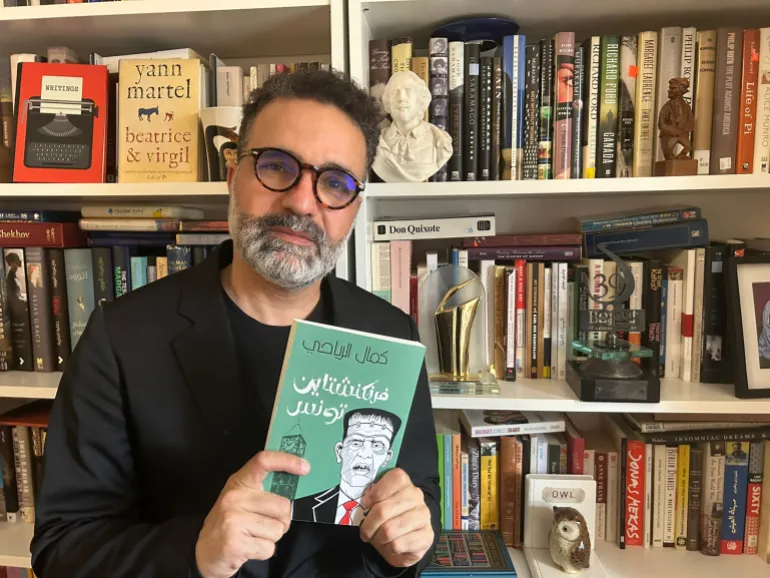
Caption: According to the author, the novel is about the collapse of democracy and public freedoms in Tunisia as well as the violation of the revolution’s values. It features a Tunisian Frankenstein as the head of state. (photo source Aljazeera)
After security closed down the booth of Riahi’s publishing house, Dar el-Kitab, other stands also closed in solidarity. Although they all unanimously reopened the next day, including Dar el-Kitab, the book remains seized.
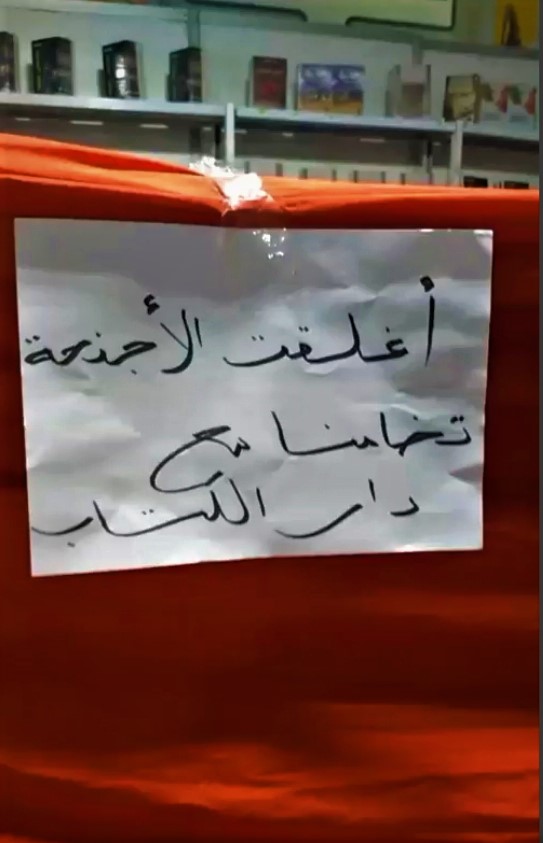
Caption: The sign says that ‘’the pavilions are closed in solidarity with Dar el-Kitab’’, in Arabic.
This incident, which happened concurrently with the president’s speech about freedom of thought, proved how fickle the political discourse that governs Tunisia is. Nevertheless, this series of events did not hinder the smooth progression of the book fair which will go on until May 7th. But, once the culture show is over, Tunisians might have to face the ugly truth that censorship is back, and that while thoughts are free words are not.


